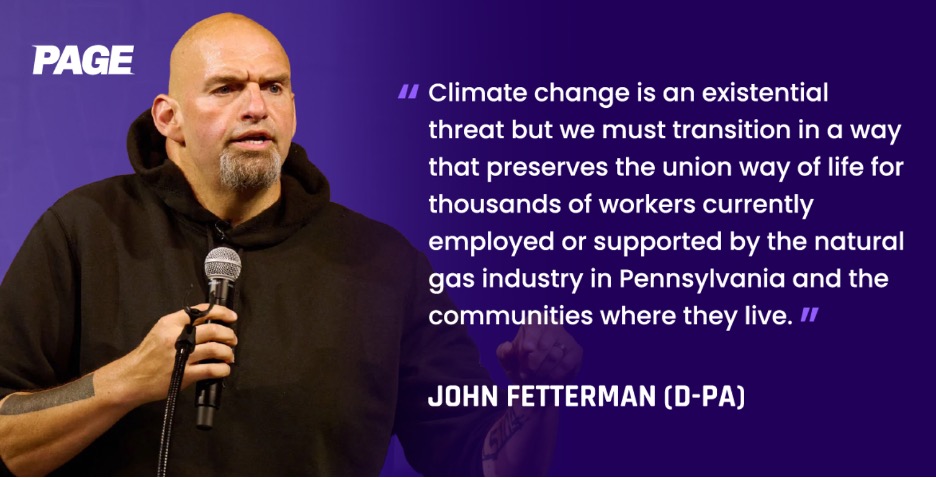Others remain silent and risk missing out on a potent electoral issue and tool for quickly decarbonizing emissions.
With the 2024 U.S. elections just two months away, candidates have limited time to engage with voters and take a stance on several critical issues, including the direction of energy and climate policy.
While Democrats have largely avoided public support for natural gas this election cycle, the recent presidential debate hosted by ABC News reinforced the bipartisan backing of this vital American resource. During the debate, Vice President Kamala Harris highlighted her work to invest in a diversity of energy sources including increasing “domestic gas production to historic levels.” While her remarks indicate a growing understanding of where voters are on the issue, the evidence suggests that adopting a more outwardly supportive position on natural gas will help her develop inroads with a majority of voters in both parties.
As the election draws nearer, Harris and the Democratic party have an opportunity to unite voters by being vocal about opportunities to use U.S. natural gas as a proven and widely popular decarbonization tool in the energy transition.
Jumpstarted by the U.S. shale boom, natural gas has been a key factor in reducing domestic emissions over last several years, and was once again the largest driver behind U.S. energy sector emissions reductions in 2023. Meanwhile, it has also served as an economic and job-creation engine in states like Pennsylvania.
A recent nationwide poll conducted by Impact Research and commissioned by the Partnership to Address Global Emissions (PAGE) shows that voters overwhelmingly support natural gas. In fact, 69% of voters, including most Democrats, support increasing natural gas production.
“The path to victory is clear: voters support natural gas, and lawmakers who have heeded public opinion have overwhelmingly been successful in their elections.”
The poll found that voters are increasingly pragmatic about the energy transition and the role of cleaner fuel sources such as natural gas. 76% of voters and 80% of Democrats want the country to move steadily to clean energy, using all available options, including natural gas, to keep energy affordable and reliable.
A winning issue for politicians and the environment
This recent polling is not an anomaly. The last several years have also proven that supporting natural gas is a winner at the ballot box, particularly for Democrats.
Lawmakers who publicly back this position include Sen. John Fetterman (D-PA), a proponent of natural gas production, who has claimed that "climate change is an existential threat, but we must transition in a way that preserves the union way of life for thousands of workers currently employed or supported by the natural gas industry in Pennsylvania and the communities where they live."

In 2022, Fetterman vocally supported natural gas and won a hotly-contested Senate seat in a year when Republicans expected to make significant legislative gains. Two years after prevailing in this election, Fetterman holds a net +7% approval rating, according to a New York Times/Siena poll.
Besides Fetterman, Sen. Michael Bennet (D-CO) has found similar electoral success. Bennet, now a three-term Senator, believes "it's been very important for American liquified natural gas (LNG) to replace the natural gas Russia was sending to Europe." The results showed in the 2022 midterms, where Bennet secured his reelection by 14.6%.
In the House, Rep. Jared Golden (D-ME) – also a strong proponent of exporting U.S. LNG to our allies overseas – represents one of the most competitive districts in the country. Nevertheless, Golden triumphed in 2020 despite Donald Trump winning the district by 11% that same year. And in 2022, Golden was reelected by 6.2%.
The Time to Champion Decarbonization is Now
The path to victory is clear: voters support natural gas, and lawmakers who have heeded public opinion have overwhelmingly been successful in their elections. By contrast, pursuing overly ambitious climate policies at the expense of proven solutions can have election consequences.
As we saw in Europe this summer, voters are willing to vote against policymakers who do not prioritize energy affordability, reliability, and security. As a result, pragmatic energy proponents made significant electoral gains across the EU's parliamentary elections.
The bottom line is that natural gas is an effective climate solution, and policymakers can openly support sensible energy policies to help them align with voters.

